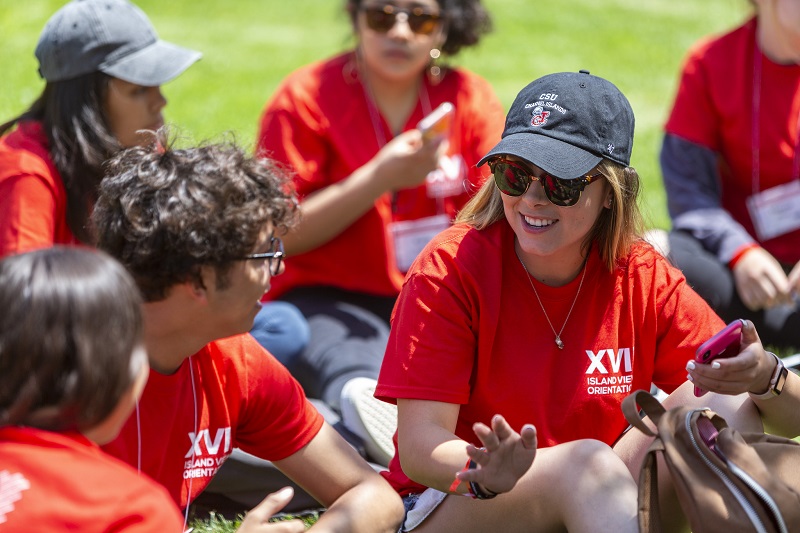 July 9, 2018 - CSU Channel Islands (CSUCI) and three other universities will address a challenge they have in common with a $75,000 joint grant from the Educational Credit Management Corporation (ECMC) Foundation.
July 9, 2018 - CSU Channel Islands (CSUCI) and three other universities will address a challenge they have in common with a $75,000 joint grant from the Educational Credit Management Corporation (ECMC) Foundation.
CSUCI, CSU Northridge, CSU Fresno and Portland State University all have common challenges with first-year dropout rates, which hover around 20 percent. Research shows that students who are from a low-income background or who are the first in their family to attend college are especially vulnerable.
The $75,000 grant, which will be shared among the four universities, will launch collaborative projects to identify barriers within the college system that may affect these students, and establish methods and programs to keep them in school through the critical freshman year.
Executive Director of Student Academic Success and Equity Initiative Amanda Quintero, Ph.D., herself a first-generation college student, said a number of factors could be obstacles to finishing the first year for low-income students who are not familiar with a university setting.
“Part of it could be financial, part of it could be that they are first-generation college students and they don’t have access to anyone in their family networks who can help them to navigate the university campus culture,” Quintero said. “Or we might learn that a disproportionate number of students who are not retained are on academic probation at the end of the first term because they didn’t know where to access support services like tutoring or the writing center.”
Making the transition from high school to college is hard enough, but when students also have few financial resources and no one in the family who has ever been to college before them, it can prove to be overwhelming. Something as simple as not knowing how to drop a class in time can land the student on academic probation.
“We can be intentional about how we communicate with students and connect them to resources like peer mentoring to support their transition from high school to university or to address different academic support needs they might have like needing to work with a tutor,” Quintero said. “A lot of times, they just don’t want to go it alone. For them, it’s not just an academic transition, it’s the cultural transition of ‘do I fit in? Do I belong? Do I matter?’”
Quintero accompanied a team of educators from CSUCI who attended the University Innovation Alliance (UIA) Summit in Atlanta, Georgia in April, where the four universities teamed up to apply for the $75,000 challenge grant. The other CSUCI educators at the summit were: Interim Associate Vice President for Academic Programs & Planning Scott Frisch, Ph.D.; Associate Dean of Arts & Sciences Mary Adler, Ph.D.; and Executive Director of Teaching & Learning Innovations Jill Leafstedt, Ph.D., who is leading the project at CSUCI.
“The summit was all about finding connections and sharing ideas about common challenges,” Leafstedt said.
The UIA Summit was a collection of 11 public research institutions working to improve student outcomes at their individual campuses. In the spirit of collaboration, the ECMC, in partnership with the UIA, offered three $75,000 challenge grants for any group of institutions committed to increasing to socioeconomic diversity on their campuses.
At CSUCI, the money will be used for “process mapping,” which involves collecting data across campus to find out what institutional and systemic barriers are contributing to first-year dropout rates. Then, programs and support based on this data can be designed to increase the numbers of students who successfully complete their freshman year, particularly among first-generation college students. The four campuses will collaborate to share strategies and compare data.
“We will find out what the students are experiencing, by analyzing all our communication and interactions with the students,” Leafstedt said. “The core researchers at each university will meet once a month, virtually, and have a problem-solving session. There are so many variables we can’t control, but we will establish the variables we can control and develop protocols. There will be a web presence that will document the monthly meetings and actions we take.”
Based in Los Angeles, the ECMC Foundation is a national foundation that makes investments in postsecondary programs and initiatives. The four-campus data collection will begin in the fall semester.
